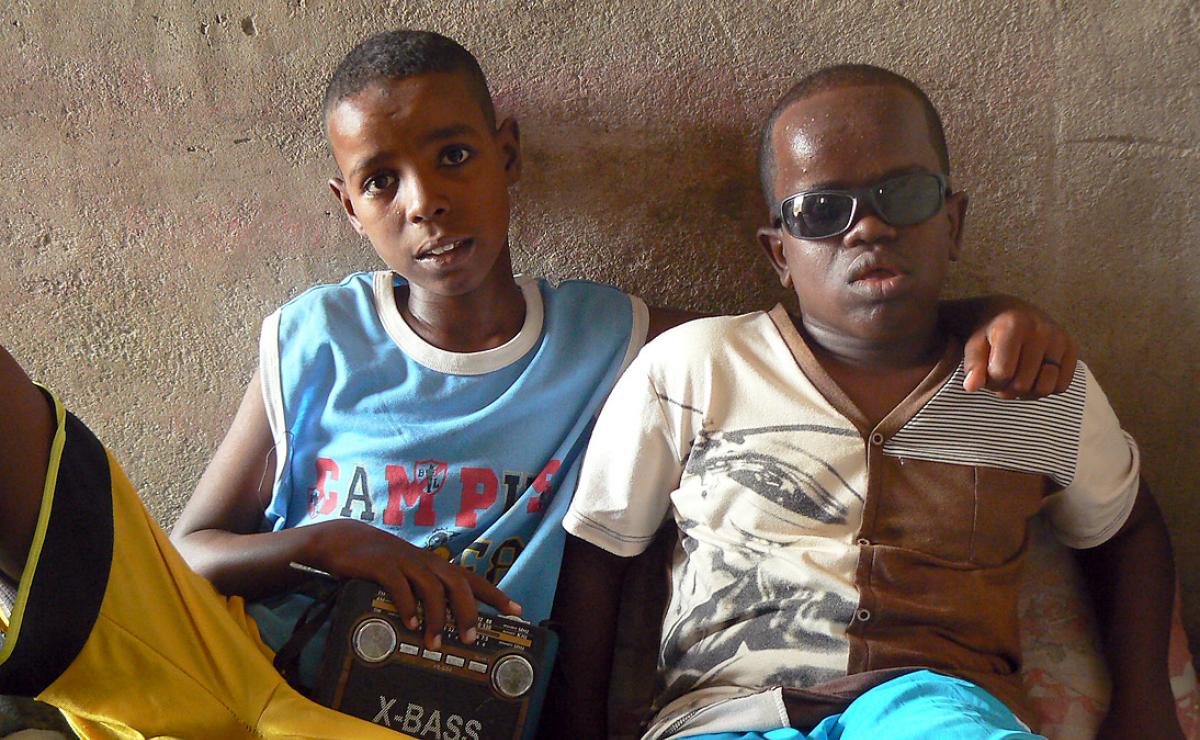When the light scatters

Jonathan Krause, Australian Lutheran World relief, recently visited the Ali Addeh refugee camp in Djibouti. In this blog, he shares the story of a school bringing education to refugee children.
At the gateway to the Wadajir Primary School where Mahomed used to be a student, a sign says ‘Education is light’. It is repeated in A4 sticky-taped to the wall of Principal Suleiman’s office, where we hide in the half-dark from the screaming sun that in a few too short moments will drag us into a day of teaching, talking and listening.
Wadajir Primary School has pride of place at Ali Addeh refugee camp in Djibouti, where LWF takes the lead role in providing education to the 2,326 children here.
A radio for company
Education is light here, but the light stopped for Mahomed when he was in his fifth year of primary school.
He tells me this from behind the sunglasses the LWF team gave him to protect him from the pain of the sun after he suddenly became blind.
At Mahomed’s side is a box radio. Inside it the BBC and the European Cup and the local football argue for his attention.
The concrete floor is bare, except for the mattress Mahomed leans on. He waits for his friends to come. But they don’t. It’s just me and my notepad and a camera he cannot see. “Before I had many friends but now only a few friends come to visit. This makes me not feel well.”
With another agency, the LWF obtained a solid corrugated iron house for Mahomed’s family. It is encouraging organizations with responsibility for special needs children like Mohamed to extend help to him.
Becoming like the sun
Back at Wadajir, when I ask the school management committee what the phrase ‘Education is light’ means, there are polite answers:
“We believe education is light. At night we are in the dark, but in the morning we see light,” one person says.
I want to tell them I’m still in the dark but smile instead. Someone reads my mind and says, “When a person is illiterate, he is in the dark. With education he or she becomes like the sun, filling the world with light.”
Blind, not illiterate
Here the sun fills the world with sweat, dust, stones, sand and queues for food and donkey carts saddled with yellow jerry-cans of water dragged from the dark of the earth.
It is also the place of endless days of endless heat and still no word from the official ones you’ve told your story to a hundred times so they can pick you up and carry you away to a place where the sun is kinder and the light is finer and the world a place where you want to be.
“We welcome you with open hearts...”
No, it’s not the world I come from welcoming those trapped here between the dark and the light, but the trapped ones welcoming me…
“It seems to me an illiterate person is like a blind person. We are parents, and we see education as the light,” I am told.
Mahomed is blind, but not illiterate.
“I have my knowledge, I have my mind. I can listen and share what is going on.
If I receive some news, I can share it with my momma and my brothers and my sisters.”
Back in the classroom where he used to learn, a teacher from Australia is teaching the children a song from Sunday School, “This little light of mine.” The words are simple, but the singing bright and light: “I’m gonna let it shine.”
The teacher singing knows the words but the children here just like the tune.
The light fights night in Mahomed’s world. It has had to squeeze itself into a box on the concrete floor, talking for hours on end to a boy trying to find a way to make the hours end until night when others are tip-toed into the same dark he swims all day each day. If the radio dies, what will Mahomed’s world be?
Mahomed’s younger brother Mahmoud does not wait to find out. After school each day the 14 year old looks for jobs so he can earn money to buy batteries.
Back in the principal’s office, school committee member Kalsuma, so passionate for education her eyes are alight, tells me, “We need the light to scatter.”
A new song
On the last day of our visit, the community invites us to Eid, the most precious day of the Muslim calendar. The celebration marks the end of the 29 days of daylight fasting for Ramadan.
At Eid, the world comes alive. Children are in brand new clothes. The brighter the colours and crazier the patterns, the louder the laughter. Girls with hair knotted up into rainbow-radiant beads.
Boys and girls with plastic sunglasses, toy guns and crackle-paper lollies that won’t melt in the sun. Their father’s hand around their tiny fingers, as they go neighbour to neighbour for forgiveness and fun, while mothers prepares the food that in a few hours will become the feast to follow the fast.
We are guests of honour.
Some tell us that never before has anyone come to celebrate Eid with them. They feel no one remembers them or knows they are people from faraway clinging to hope on the edge of the desert - not until we people from faraway come to cling to that hope too.
Just our being here, even in our clumsiness and shyness and so-far-out-of-our-depth-we-struggle-for-air, tells them they are special.
To make us feel special, they tell us the children have prepared a song. They sing, “This little light of mine, I’m gonna let it shine.”
Let it shine. Then let it scatter.
Jonathan Krause works for Australian Lutheran World Relief, an LWF partner in Djibouti.

